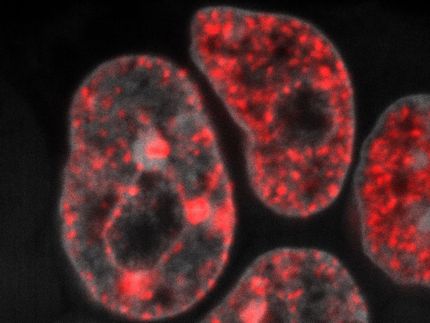First heart failure patient to receive stem cells
Treatment of chemotherapy-induced heart failure in clinical study
A class of cancer medications that significantly increases survival in patients with the disease has a dangerous side effect: They can sometimes cause irreversible damage to patients’ hearts.
For the first time, University of Florida Health cardiologists have implanted stem cells into the heart of a breast cancer survivor with heart failure in a Phase 1 clinical trial that will examine the feasibility and safety of treating these kinds of patients with stem cells. In the next phases of clinical trials, the researchers will be studying whether stem cells from healthy subjects can improve heart function in patients who have been treated with a group of drugs called anthracyclines, chemotherapy drugs that are still used today.
In about 3 to 5 percent of patients treated with anthracycline, the chemotherapy causes a form of heart failure called anthracycline-induced cardiomyopathy, according to Carl Pepine, M.D., a professor of medicine in the UF College of Medicine, who is leading the research at UF.
The researchers are hoping that injecting mesenchymal stromal cells — cells formed in bone marrow that have not yet developed for a specific role in the body — into the hearts of patients with this kind of cardiomyopathy can instigate the regeneration or repair of damaged and scarred tissue.
“We hope the cells will cause the heart tissue to regenerate and repair itself by attracting other ‘repair cells’ to restore functional heart tissue damaged by the anthracyclines,” said Anita Szady, M.D., a member of the heart failure and cardiac transplant team within the UF College of Medicine’s division of cardiovascular medicine.
Anthracyclines have been used over the past 50 years in patients with breast cancer, lymphomas, leukemia and sarcomas, or bone tumors. If some patients were given too much of the medicine, or were treated for too long with the drug, they were at risk of damage to their heart tissue. Anthracyclines are still used to treat patients with cancer, but now cardiologists work closely with oncologists to monitor the amount of the drug given as well as the patient’s cardiac function, says Szady.
The heart failure can show up as long as 20 years after the patient’s cancer treatment. Some patients with cardiomyopathy benefit from typical medications used to treat heart failure, such as ACE inhibitors, statins and beta blockers, but other patients may not benefit from these medications and some require heart transplants.
Szady is the cardiologist of the patient who recently received the stem cells. Heart failure is often referred to as “reduced ejection fraction,” or a poor ability to pump oxygen-rich blood through the body. That’s because part of the heart tissue important in pumping blood is damaged.
“Her heart function is limited and her options for advanced therapy are limited,” Szady said. “This trial is something I felt was perfect for her.”
Szady will meet with and evaluate the patient following the procedure at intervals of one week, one month, six months and a year.
The stem cells used in the trial are taken from healthy donors because of the participants’ histories of cancer. These particular stem cells are allogeneic, which means when they are transplanted into a different host, the host’s immune system does not mount an attack against these mesenchymal stromal cells in the same way it might against some other kinds of cells.
“The first goal of this trial is to look at safety,’’ Pepine said. “Allogeneic cells have been given to hundreds of patients, and this has been done for a number of years here at UF in other trials, so we don’t anticipate a problem. But these cells have never been given to people who have this disease.’’
The Phase 1 trial, sponsored by the National Heart, Lung and Blood Institute, part of the National Institutes of Health, is set to recruit 36 patients at seven clinical sites within the Cardiovascular Cell Therapy Research Network. This network, funded by the NIH, connects researchers who are studying stem cell therapy for treating heart disease.





















































